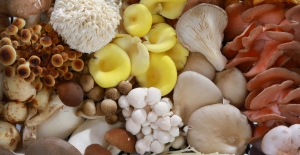The mushroom sector is entering a transformative phase, where farming tradition meets cutting-edge innovation. Once seen simply as a niche crop, mushrooms are now emerging as powerful contributors to sustainable agriculture, human wellness, and even material science.
Shaping a circular food system
One of mushrooms’ greatest strengths lies in their resource efficiency. Unlike many crops, they flourish on byproducts such as straw, sawdust, or coffee grounds, making them natural allies in the shift toward circular farming. For growers, this opens opportunities to reduce waste, diversify substrates, and partner with other agricultural industries to create closed-loop systems.
Health on the rise
Consumer interest in functional and nutrient-rich foods continues to surge, and mushrooms are at the forefront. Varieties like Lion’s Mane and Reishi are valued for their adaptogenic potential, while everyday favorites such as oyster and button mushrooms are being recognized for their protein, fiber, and vitamin D. This dual reputation, both as staple food and functional ingredient, is fueling new product development across the food and supplement industries.
Farming smarter with technology
The drive toward efficiency and scalability has accelerated adoption of digital tools. Automated climate systems, AI-based monitoring, and sensor-driven data analytics are helping growers fine-tune production while tackling labor shortages. Farms that embrace these technologies are finding new ways to improve yields, cut costs, and meet rising demand with consistency.
Beyond the plate
Mushrooms are increasingly breaking into non-food markets. Mycelium, the root-like structure of fungi, is now being used to create biodegradable packaging, sustainable textiles, and even construction materials. These developments highlight the mushroom industry’s potential to play a role far beyond food, positioning it as a cornerstone of sustainable innovation.
Building a future-ready industry
As mushrooms gain attention worldwide, the industry faces both opportunity and responsibility. Growth must balance innovation with sustainability, ensuring practices that protect natural resources while meeting expanding consumer expectations. Collaboration between farmers, researchers, and entrepreneurs will be vital in keeping the sector resilient.
Mushrooms today are not only a crop but a vision of what agriculture and innovation can achieve together. For farmers and industry leaders, the message is clear: cultivating mushrooms means cultivating the future.
In the following weeks we'll dive deeper into theses subjects. Do you have expertise, research or success stories on these subjects that can inspire others? Reach out and let’s share your voice with our readers!
Published by Mushroom Matter: connecting the global mushroom community through insight, innovation, and inspiration






















